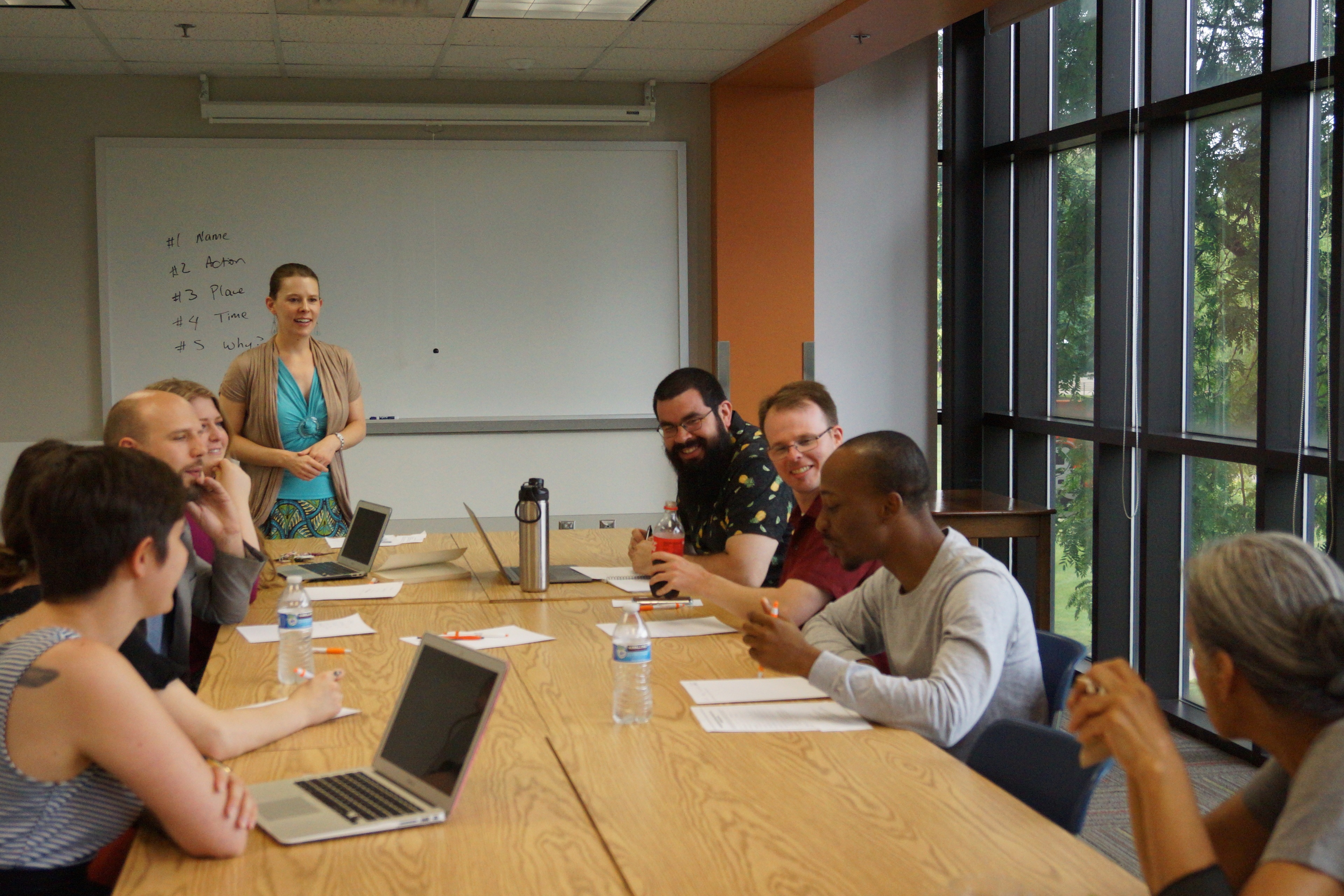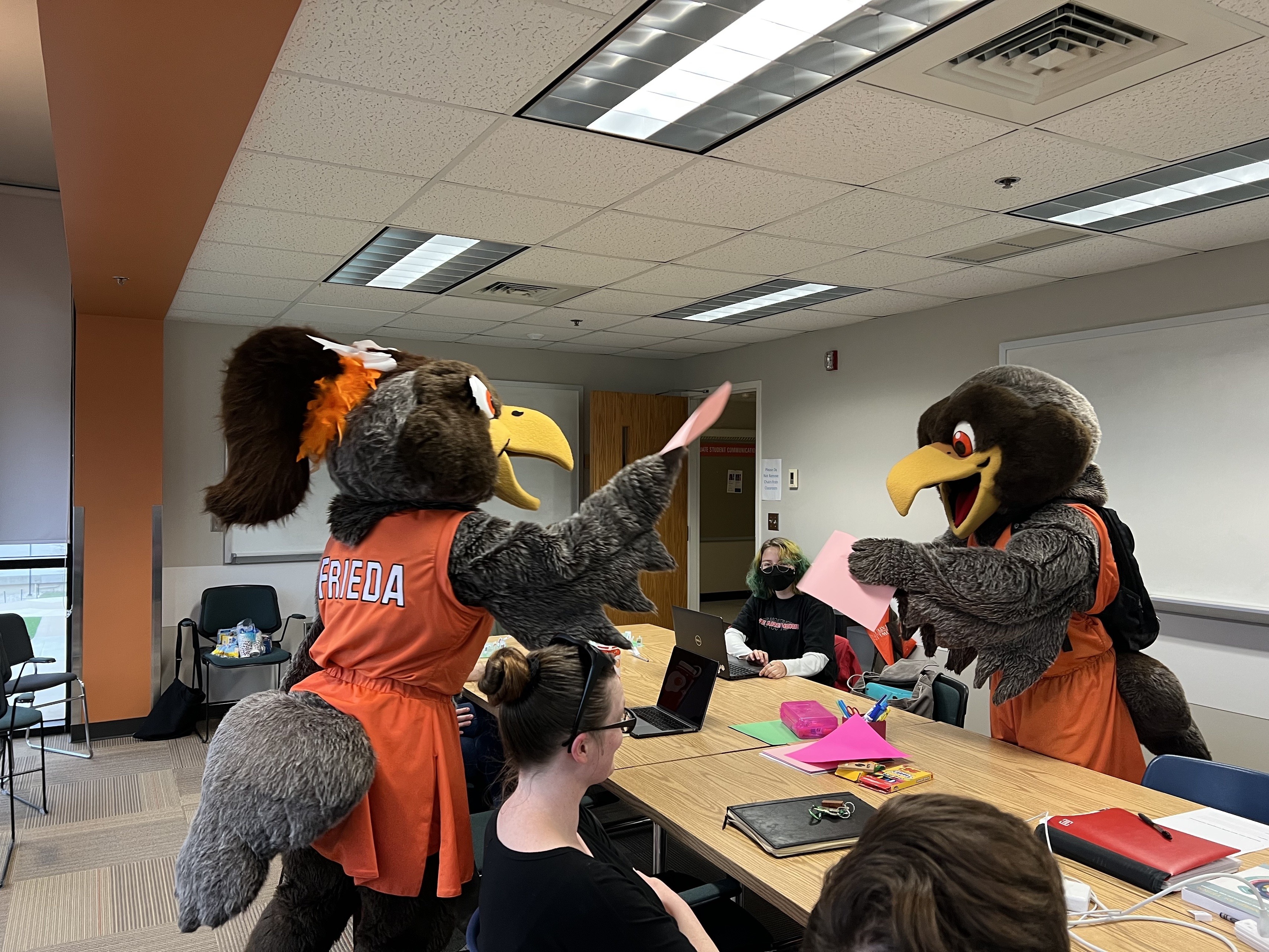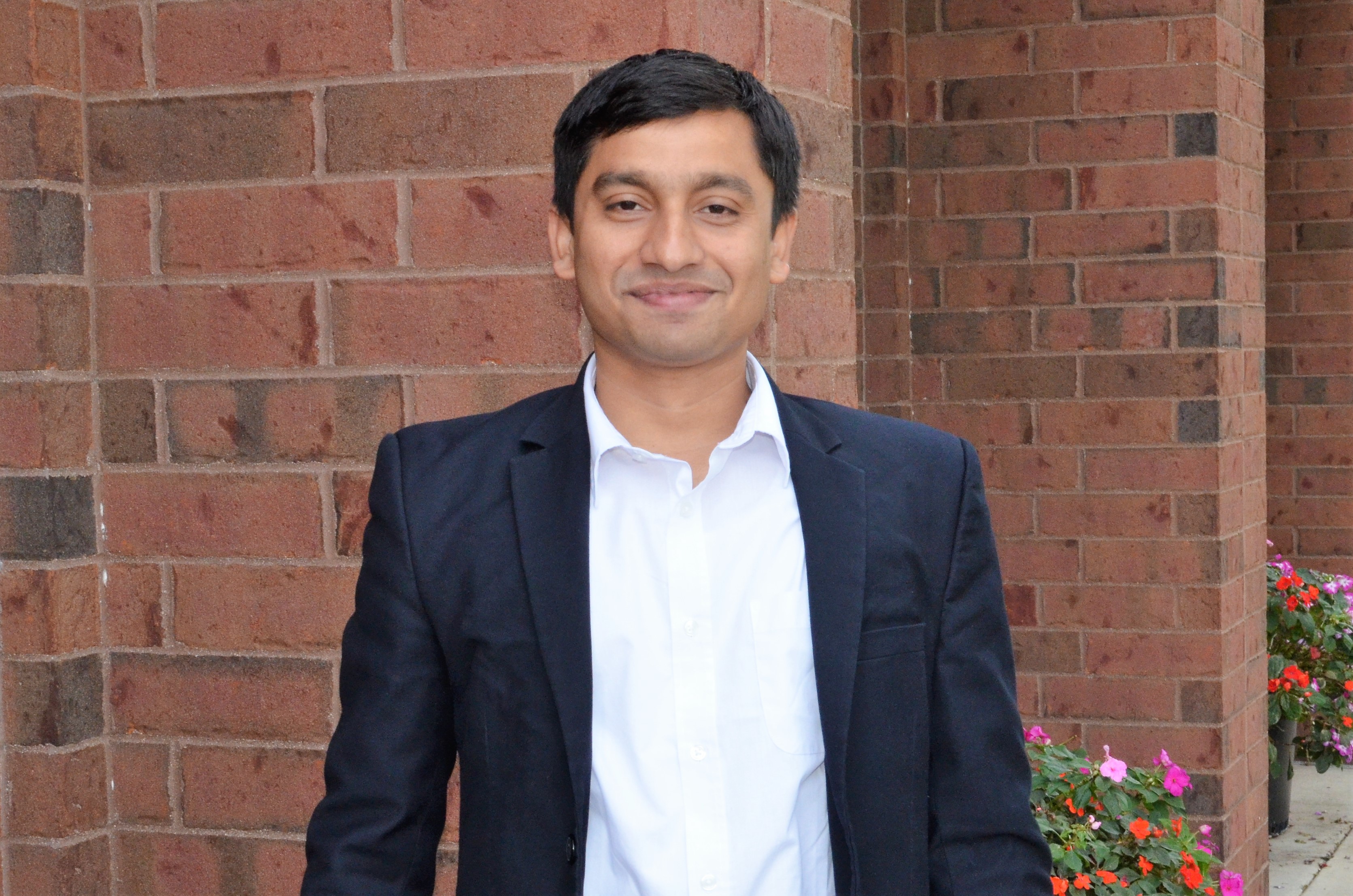TESOL Certificate Program


The TESOL certificate program has paused admission for the 2023-2024 academic year. If you are interested in our program for the following year, please contact us.
As the demand for fluent speakers of English grows in national and international educational settings, the need for trained English teachers also grows. Graduate students at Bowling Green State University have the opportunity to earn a certificate in Teaching English to Speakers of Other Languages (TESOL).
BGSU’s TESOL certificate is designed to offer both current and future teachers the technical information about linguistics, language pedagogy and the structure of English they need to work in second language settings. Students wishing to earn the certificate take a total of four courses (12 hours) in the English department. We currently offer these classes two at a time so that students can complete the certificate in a single year or can spread the courses out over two years.
Although the TESOL Certificate admission is currently paused, students interested in TESOL could take the following courses.
Overview of TESOL and Applied Linguistics offerings:
- LING 5100: Methods of TESOL. The course covers major theories, practices, and methods of Teaching English to Speakers of Other Languages. Readings illustrate a historical perspective and current methods and practices in the field, with a focus on communicative language teaching and applications related to the teaching of listening, speaking, vocabulary, syntax, reading, and writing. Other topics include syllabus design, cultural implications, and technology use. (Offered in-person spring on odd years on alternating schedules with LING 5160)
- LING 5160: Sociolinguistics. The course covers the impact of factors such as education, race, socio-economic status, ethnicity, and gender on language in the classroom and in general usage; effects of culture on language; principles and methods of dialect studies; historical linguistics; World Englishes and the history of English. (Offered online spring on even years on alternating schedules with LING 5100)
- LING 6150. This course is an introduction to linguistics. It covers phonetics, phonology, morphology, syntax and typology of English and other languages; psycholinguistics, language preservation introduction to first and second language acquisition, some sociolinguistics, and other topics as possible. Emphasis is placed on the objective linguistic analysis of language. (Offered online every fall)
- ENG 6800: Seminar in English Studies/ Exploring Vocabulary Learning and Teaching. As our department motto says, Words Change Worlds. Words are powerful, and they enable us to voice our thoughts and communicate with others. Vocabulary is also a key element of language learning. As such, English and content area teachers alike play an important role in facilitating learners’ vocabulary development. This class explores key ideas from the research on vocabulary learning and teaching, with a particular focus on speakers of English as an additional language. We’ll discover answers to foundational questions like “What does it mean to know a word?”; “How do we learn new vocabulary?”; “Which words should we teach?” Building on these topics, we’ll explore various resources and strategies, including insights from the scholarship of teaching and learning. Throughout the semester, students will pursue their own interests related to vocabulary, applying their learning to their own experiences and teaching/learning contexts. (Offered online Fall 2023)
Related Courses in the English Department:
- ENG 6200: Teaching of Writing. The course covers theories, approaches, methods, and techniques designed to guide prospective teacher of composition in selecting approach most appropriate to his/her goals; readings and projects related to goals; current publications on writing. (Offered online every summer and spring semester)
- ENG 6220: Teaching Grammar in the Context of Writing. The course reviews research on the relationship between writing ability and knowledge of grammar; strategies for integrating grammar instruction with the teaching of writing; strategies for teaching students to identify major errors and develop style. (Offered online every fall semester)
A list of courses in the 2024-2025 academic year for students interested in TESOL/Linguistics.
- Fall 2024:
- LING 6150: Introduction to Linguistics (call # 772085); 15-week online class (8/26/2024 - 12/13/2024)
- ENG 6220: Teaching Grammar in the Context of Writing (call # 75567); 15-week online course (8/26/2024 - 12/13/2024)
- Spring 2025:
- ENG 6200: Teaching of Writing (call # 13014); 15-week online class (01/13/2025 - 05/02/2025)
To review the department's course rotation, please visit here.
Student Spotlight: Shahin Hossain
Tell us a little about yourself.
I was born in Bangladesh and grew up dreaming of becoming an elementary school teacher. While doing my undergrad in English, I started teaching English at various levels and set my goal to become a professor of English after completing my higher education. I earned my Bachelor's and Master's in English from the University of Dhaka, Bangladesh. And the second Master in English from Bowling Green State University. Currently, I am doing my Ph.D. in Language, Literacy, and Culture at the University of Maryland, Baltimore County.
Student Spotlight: Michael Oshindoro

Tell us a little about yourself and your experience pursuing TESOL Certificate at BGSU.
Back in Nigeria, I taught English for many years, helping school leaving certificate holders to prepare for a university entry level examination called JAMB. On arrival in the United States as a Fulbright fellow, I taught Yoruba, my native language, to American students. These experiences coupled with my prior training in Linguistics provided a backdrop for my interest in SLA pedagogy. So, when I was applying to the English department, one of the reasons I wanted to go to BGSU was the TESOL program. I was also excited about the potential of certification as an English language instructor, especially being a non-native English-speaking teacher (NNEST). The TESOL program at BGSU is rich both in theory and practice. Intensive and keeping up to date with the most recent practices in language pedagogy, the TESOL curriculum prepared students for a productive and outstanding teaching experience. In the TESOL classroom, theory lost its tortuous power and ceased to be nerve-racking; we were immersed in the practical application of theories and methods. The program is designed to be hands-on and students are trained to be explorative and adaptable to the different methods and techniques there are in the teaching of English.
Student Spotlight: Shaydon Bryce Ramey
Tell us a little about yourself (fun facts, background, experiences, etc.) and your professional and educational journey. How and why did you end up where you are now? What made you pursue a teaching career?
I am 29 years old and currently studying English, French, and Spanish education at the Martin Luther University of Halle-Wittenberg, Germany. Somewhere throughout my language studies at Wittenberg University in Springfield, Ohio and at BGSU and my time as a Fulbright language assistant in Lutherstadt Wittenberg, Germany, I decided that my original plan of becoming a translator was no longer the dream I thought it was and that instead, I wanted to be a teacher. I still translate on the side and it is helping me fund my studies, but my goal is to work in a college-preparatory secondary school here, which covers grades 5-12. I think the big difference came about in seeing what language education is like abroad. It’s not like at home, where everyone takes Spanish or French because it’s required, but doesn’t take it seriously, only knows a few phrases at the end, and never uses it again. Many other parts of the world take language learning seriously, particularly with English, and Germany is a great example of that. I feel very prepared for this route I am taking: I gained a lot of experience throughout my Fulbright and MA programs, and my studies with the Spanish and TESOL programs at BGSU really helped me to solidify this knowledge by giving me the theoretical knowledge that had been missing and which helped me to better reflect on both past and future experiences.What made you initially decide to pursue to TESOL certificate?
What made you initially decide to pursue TESOL certificate? How has obtaining the TESOL certificate impacted/supported your current work?
By the time I reached BG’s campus, I had already taught and tutored English in Germany, Austria, and Spain, and my first semester on campus, I started volunteering with La Conexión. I was already starting to steer towards a teaching career, and I recognized that TESOL could really help me, especially as I was thinking more about teaching overseas than at home. While it may not be the equivalent of a teaching license anywhere, it has given me greater legitimacy, not to mention all the things I learned. With these skills, I was able to teach ESL for about 6 months at UT’s American Language Institute, which was a really fantastic experience, and it also helped cover a few courses in my current program. The methods course, which I took concurrently with a second language acquisition course in the Spanish department, also really awoke my interest in how we learn language and all the different factors that contribute to this. Also, I have to admit that while I was always good at English grammar and writing, being able to look more analytically at the language and understand the underlying mechanics has been really helpful to me as a translator and proofreader, so I am always improving that craft as well.
If students choose the two-year cycle, we recommend the order given below:
LING 6150: Modern English Linguistics; offered online summer and fall semester
This is a starting point of the certificate cycle: An introduction to the study of languages and linguistics with an emphasis on the structure of the languages of the world. Topics include: phonetics, phonology, morphology, syntax, language death, language acquisition, psycholinguistics, gender and language and first language acquisition.LING 5170: Applied Syntax; Offered Spring Semester
An in-depth study of English syntax with a focus on areas that are difficult for second language learners. Emphasis is placed on how English differs from other widely-spoken languages, recognizing and diagnosing learners' errors and clearly and accurately answering students' questions about grammar and usage.LING 5180: Applied Phonology; offered fall semester
An in-depth study of the sound structure of English and other languages. The consonants, vowels, syllable structure and intonation of English are studied both to discover how best to teach clear pronunciation and to predict what areas will pose difficulties for students. Emphasis is placed on developing exceptional phonetic transcription skills and developing strategies for teaching clear pronunciation.LING 5100: Methods of TESOL; Offered Spring Semester
This class is, in many ways, the capstone of the certificate cycle: An up-to-date study of the theories and best practices of teaching a second language both in the classroom and in tutoring situations. Students in this class have access to the ESOL department's exceptional staff of ESOL instructors during this semester and may observe these courses. They will study the history of pedagogical thought on language acquisition and engage with important classroom issues.
As the demand for fluent speakers of English grows in national and international educational settings, the need for trained English teachers grows also. Although we do not currently offer an Ohio K-12 endorsement in TESOL, BGSU's certificate is designed to offer teachers and future teachers the technical information about linguistics, language pedagogy and the structure of English they need to work effectively in second language settings. This set of courses serves as excellent preparation for those who wish to teach English overseas or for those wishing to pursue further studies in linguistics.
The program is designed either as a stand-alone certification or as a complement to graduate degrees in English, Education, Spanish, German, French, MACIE, business, social work and related fields.
Students considering the certificate might also want to investigate:
- BGSU's modern Language Learning Center: a fully-equipped language learning laboratory
- The Cross Cultural Conversation Connection program: an ESOL program outreach which pairs American and international students for cultural exchange and language practice.
- The ESOL program: speaking, listening, reading and writing courses for those whose first language is not English. Although entering students must have a good command of English to begin TESOL classes, the availability of these courses means that non - native speakers of English can receive some language support themselves while studying for the TESOL certificate.
- Community English class: another outreach of BGSU's ESOL program: a non-academic English class for community members and families of BGSU students and employees.
Applicants should complete the online application through BGSU Graduate College, which will collect all necessary materials. Required materials include:
- Transcripts for each college or university attended.
- Application fee.
- A statement of purpose (roughly 2 pages, double-spaced).
- Three (3) letters of recommendation.
In addition, applicants must demonstrate sufficient command of spoken and written English to complete the coursework. English proficiency is demonstrated by way of an interview with the TESOL program coordinator or ESOL director.
Learning outcomes
Graduates of the TESOL graduate certificate program are able to:
- Analyze the syntax, phonology, and morphology of the English language to demonstrate a clear understanding of how language works.
- Compare and contrast English with different languages in order to understand which aspects of English will be challenging for English language learners.
- Examine how Second Language Acquisition theories and research inform pedagogical practices.
- Design and create teaching materials for English language learners in a variety of settings.
- Integrate knowledge about theories with reflective teaching practices.
Please contact gradenglish@bgsu.edu for more information.
Updated: 11/24/2025 02:30PM


